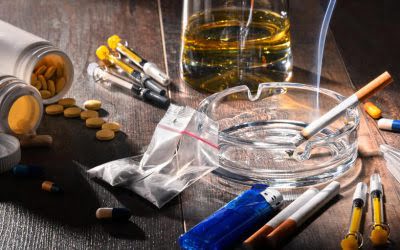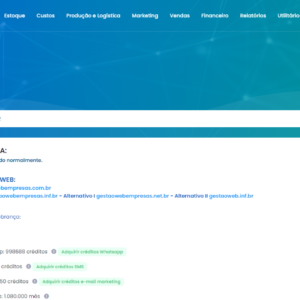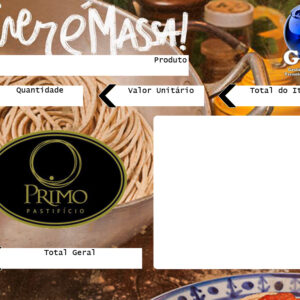The Alcoholic Narcissist When the narcissist is drunk, does by A. M. Champion
21 de setembro de 2020Other forms of emotional abuse such as showing contempt for the child and ignoring the child creates an overwhelming sense of toxic shame. Children of narcissists who are habitually ignored learn to ignore their own needs as adults as they cater to others and walk on eggshells. “If you have a communal narcissist in your life, it is usually not helpful to try to explain why you don’t think their intentions are legitimate,” says Le Goy.
- “A person with a narcissistic personality disorder may act like they think the world is a movie in which they’re the star, and everyone else is an extra,” Wagage told Verywell via an email.
- Narcissism is a personality disorder that shares many common traits with addiction.
- A mental health professional can talk through the symptoms of a narcissistic personality disorder and rule out other behavioral disorders.
Narcissists are very emotionally fragile and can have extreme reactions to any type of negative criticism. They have to continually be seen at the center of attention and to deny that anyone is equal or better. Many people with narcissism may also have an addiction to alcohol, sex, drugs, or social media. However, not everyone with narcissism has an addiction and vice versa. Narcissism may leave people more prone to problematic substance use, including alcohol use disorder, as well as other forms of addiction, such as sex addiction and social media addiction.
Symptoms
Narcissists make relationships all about themselves, and for alcoholics, the most important thing is the freedom to drink. It is not uncommon to enter into a relationship with someone who seems like Mr. or Mrs. Right during the dating phase only to find out they have an addiction problem once you are married or living together as partners. Unfortunately, many addicts are experts at hiding their addictive behaviors. Addictions to pornography, sex, shopping, gambling, and work are much easier to hide from dating partners than addictions to alcohol or drugs. Although experts believe that genetic factors can make people up to 50% more inclined toward alcohol use disorder, addiction has many possible causes.
- Whether culturally specific experiences may protect against or increase vulnerability to NPD, or whether DSM-IV PD categories may be culturally uninformed, are important questions for future clinical and epidemiologic research.
- Anxiety disorders included DSM-IV primary panic disorder with and without agoraphobia, social and specific phobias, and generalized anxiety disorder (GAD).
- Someone engaging in narcissistic abuse often has little respect for boundaries.
If you live in a remote region, you can also find online support through Facebook Groups or by joining “closed” support groups like I am Sober, Sober Tool, and Sober Grid. You can also access educational and self-help material from organizations like the National Education Alliance for Borderline Personality Disorder (NEABPD). Finding the right support system is important when dealing with NPD and AUD.
Grandiose Narcissism and Alcohol Outcomes
People with AUD may have self-awareness of their condition and a desire to change. However, some with NPD may not be aware of how their behavior affects others. Our experts continually monitor the health and wellness space, and we update our articles when new information becomes available. Although NPD can’t be cured, someone with NPD can change their behavior if they’re willing to put in the time and effort, according to research from 2018. If your alcohol use is severe, you’ll likely need to go to an inpatient facility so that you can safely withdraw from alcohol.
Next, you give up your hobbies, skip after-work happy hour with co-workers, and eventually cancel your weekly visit with your sister. You spend time doing what your partner wants to do, so they know you really do care. You may not know whether they’re going to criticize you or surprise you https://ecosoberhouse.com/ with a gift. Even after leaving the relationship, you might believe you can’t do anything right. When things go wrong in other areas of life, you might start to blame yourself for causing those problems. You explain the concerning behaviors you’ve noticed and ask if something’s going on.
Dual Diagnosis: Alcoholism And NPD
The final analysis sample was 345 participants, which represents about 90% of the original 383 participants. Thirteen additional outliers were included but reduced in value to one unit greater than the nearest non-outlying value.42 Variables included in the analyses were relatively normally distributed. covert narcissism and alcoholism When AUD and NPD occur together, it can increase a person’s hostility and aggression. This can make treatment more challenging than it would be to treat each issue separately. The number of criteria a person meets determines whether they have AUD, and if so, the severity of the condition.
They can create a healthy, mutual dependency on their partners without becoming excessively preoccupied with the relationship. Yet as adult children of narcissists, one of our “superpowers” is our highly tuned intuition about the motives of people; research has confirmed that those who endure childhood adversity often develop a radar for danger. Initially, when you first meet a communal narcissist, it’s unlikely that you will realize they are one. It can take time to see their personality traits and to realize that their intentions aren’t as genuine as you believed. After being involved with someone narcissistic, you may find yourself developing one or more of these effects. You’ve likely developed some negative coping mechanisms, including people-pleasing behaviors and/or self-destructive habits after experiencing such an ordeal.
Co-Occurrence of Lifetime DSM-IV NPD and Lifetime Axis I and II Psychiatric Disorders
If you’ve experienced narcissistic abuse, you might also have trouble setting healthy boundaries in your relationships with others. “A person with a narcissistic personality disorder may act like they think the world is a movie in which they’re the star, and everyone else is an extra,” Wagage told Verywell via an email. Both narcissists and alcoholics believe they deserve special treatment.




